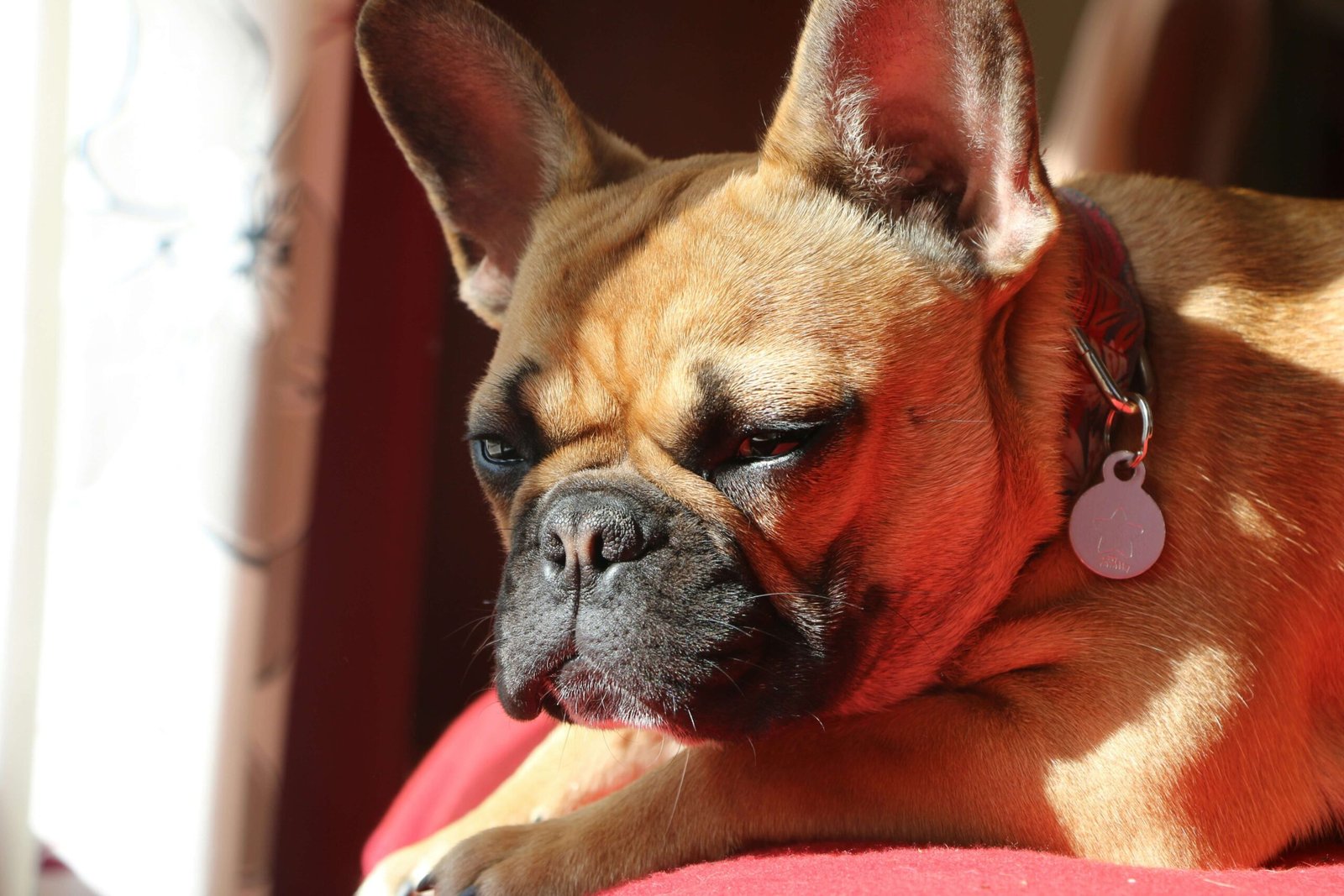Lazy Dog Breeds: The Perfect Companions for a Relaxed Lifestyle
If you’re looking for a canine companion that matches your laid-back lifestyle, lazy dog breeds might be the perfect fit. These dogs are known for their calm demeanor, low energy levels, and love for lounging around. Whether you live in a small apartment or simply prefer a pet that doesn’t demand constant activity, lazy dog breeds offer the companionship you crave without the high-maintenance needs of more energetic pups. In this blog post, we’ll explore some of the best lazy dog breeds, their unique traits, and how to care for them. Get ready to meet your new furry couch potato!
Top Lazy Dog Breeds You Should Consider
When it comes to lazy dog breeds, certain breeds stand out for their relaxed personalities and minimal exercise requirements. Here are some of the best options:
Bulldog
Known for their stocky build and wrinkled face, Bulldogs are content with short walks and plenty of naps.Basset Hound
With their droopy eyes and laid-back attitude, Basset Hounds are happy to lounge and sniff around occasionally.Shih Tzu
These small, affectionate dogs are more interested in cuddling than running marathons.Great Dane
Despite their massive size, Great Danes are surprisingly low-energy and enjoy lounging indoors.Pug
Pugs are playful but tire easily, making them ideal for owners who prefer a slower pace of life.
These lazy dog breeds are perfect for those seeking a companion who values relaxation as much as you do.
Characteristics of Lazy Dog Breeds
Lazy dog breeds share several common traits that make them well-suited for a relaxed lifestyle. Here’s what sets them apart:
Low Energy Levels
These dogs are content with minimal exercise, often preferring a short stroll over a long hike.Affectionate Nature
Many lazy breeds thrive on human companionship and enjoy spending time close to their owners.Adaptability to Small Spaces
Most lazy breeds do well in apartments or smaller homes due to their sedentary habits.Easygoing Temperament
Their calm personalities make them great companions for families, singles, and seniors alike.Minimal Grooming Needs
While grooming varies by breed, many lazy dogs require only moderate upkeep to stay clean and healthy.
These characteristics make lazy dog breeds an excellent choice for those seeking a stress-free pet ownership experience.
Check this guide 👉Large Bearded Dog Breeds: Best 7 Expert Tips!
Check this guide 👉Gentle Giant Dog Breeds: Best 7 Expert Tips!
Check this guide 👉Quiet Small Dog Breeds: Best 7 Expert Tips!

Dog Breed | Key Traits |
|---|---|
Bulldog | Wrinkled face, short walks, loves napping |
Basset Hound | Droopy eyes, calm demeanor, occasional sniffing |
Shih Tzu | Small size, cuddly nature, minimal exercise |
Great Dane | Large size, gentle giant, enjoys lounging |
Pug | Playful yet lazy, loves attention, easygoing |
Tips for Caring for a Lazy Dog Breed
While lazy dog breeds are relatively low-maintenance, they still require proper care to ensure their health and happiness. Here are some tips to keep in mind:
Provide Regular Exercise
Even lazy breeds need short daily walks to maintain a healthy weight and prevent boredom.Offer Mental Stimulation
Puzzle toys and interactive games can keep their minds sharp despite their laid-back nature.Monitor Their Diet
Lazy breeds are prone to obesity, so feed them a balanced diet and avoid overfeeding.Create a Comfortable Space
Provide cozy bedding and a quiet area where they can relax and feel secure.Schedule Regular Vet Check-Ups
Routine veterinary visits help catch potential health issues early and keep your dog in top shape.
By following these tips, you can ensure your lazy dog remains happy, healthy, and content.
How to Keep Your Lazy Dog Engaged
Even though lazy dog breeds aren’t overly active, they still benefit from mental and physical engagement. Here’s how to keep them entertained:
Short Play Sessions
Spend 10-15 minutes playing fetch or tug-of-war to burn off excess energy.Interactive Toys
Toys that dispense treats or require problem-solving can keep your dog mentally stimulated.Training Sessions
Teach basic commands or tricks to challenge their minds and strengthen your bond.Socialization Opportunities
Arrange playdates with other calm dogs to encourage gentle interaction.Outdoor Exploration
Let your dog explore new environments during leisurely walks to satisfy their curiosity.
Engaging your lazy dog in these activities ensures they remain both physically and mentally fulfilled.
Understanding the Appeal of Lazy Dog Breeds
Lazy dog breeds have become increasingly popular due to their relaxed nature and compatibility with modern lifestyles. Here’s why they appeal to so many dog lovers:
Perfect for Urban Living
These breeds adapt well to apartment life, requiring less space and exercise than high-energy dogs.Great for Seniors
Their calm temperament makes them ideal companions for older adults who may not be able to handle an active pet.Family-Friendly
Lazy breeds are often patient and gentle, making them excellent additions to households with children.Low Stress Ownership
With fewer demands for exercise and training, these dogs reduce the stress of pet ownership.Affectionate Companions
Many lazy breeds thrive on human interaction, providing constant love and emotional support.
The unique combination of low maintenance and high affection makes lazy dog breeds an appealing choice for a wide range of owners.
Health Considerations for Lazy Dog Breeds
While lazy dog breeds are generally easygoing, certain health considerations should be kept in mind to ensure their well-being. Here’s what you need to know:
Obesity Risk
Due to their sedentary lifestyle, these breeds are prone to weight gain if not fed a controlled diet.Brachycephalic Issues
Breeds like Bulldogs and Pugs often face breathing difficulties due to their flat faces, requiring extra care in hot weather.Joint Problems
Large lazy breeds like Great Danes may develop joint issues such as hip dysplasia as they age.Skin Fold Infections
Dogs with wrinkles, such as Bulldogs, are susceptible to skin infections if their folds aren’t cleaned regularly.Heart Conditions
Some lazy breeds, like Cavaliers and Basset Hounds, are predisposed to heart problems that require monitoring.
By staying informed about these potential health concerns, you can provide the best possible care for your lazy dog.
How to Choose the Right Lazy Dog Breed for You
With so many lazy dog breeds to choose from, selecting the perfect match for your lifestyle requires careful consideration. Here’s how to make the right decision:
Assess Your Living Space
Smaller breeds like Shih Tzus or Pugs are better suited for apartments, while larger breeds like Great Danes need more room.Consider Your Activity Level
If you enjoy occasional walks, a Basset Hound might be ideal, but if you’re mostly homebound, a Bulldog could be a better fit.Evaluate Grooming Needs
Breeds like Shih Tzus require frequent brushing, while others, like Boxers, have shorter coats that are easier to maintain.Factor in Allergies
Some lazy breeds, like Pugs, shed heavily, which may not be suitable for allergy sufferers.Think About Long-Term Commitment
Larger breeds like Great Danes may have shorter lifespans, while smaller breeds like Pugs often live longer.
By carefully considering these factors, you can find a lazy dog breed that aligns perfectly with your lifestyle and preferences.
Frequently Asked Questions About Lazy Dog Breeds
Are lazy dog breeds good for first-time owners?
Yes, their low-maintenance nature makes them ideal for beginners.
Do lazy dog breeds require less grooming?
It depends on the breed. Some, like Pugs, may need regular cleaning of facial folds, while others, like Shih Tzus, require frequent brushing.
Can lazy dog breeds adapt to hot climates?
Breeds like Bulldogs and Pugs are sensitive to heat, so extra care is needed in warmer weather.
How much exercise do lazy dog breeds need?
Most require only 20-30 minutes of light activity per day, such as a short walk or playtime.
Are lazy dog breeds prone to health issues?
Some breeds, like Bulldogs and Basset Hounds, may have genetic predispositions, so regular vet visits are essential.
Finding the Perfect Lazy Companion
Lazy dog breeds are the ultimate couch potatoes, offering unconditional love and companionship without the high-energy demands of more active dogs. Whether you’re a busy professional, a senior looking for a loyal friend, or someone who simply enjoys a relaxed lifestyle, these breeds are sure to bring joy and comfort to your home. By understanding their unique traits and meeting their basic needs, you can enjoy a harmonious relationship with your furry friend. So, if you’re ready to welcome a lazy dog into your life, prepare to experience the bliss of snuggling up with a four-legged buddy who shares your love for downtime!
Do Cats Have Taste Buds? Best 7 Expert Tips! – Discover how cats experience flavors and why their taste is so unique.
Do Dogs Have Taste Buds? Best 7 Expert Tips! – Discover how dogs experience taste, their preferences, and what it means for their diet and health.
Can Cats Taste Sweet? Best 7 Expert Tips! – Discover why cats can’t taste sweetness, how it affects their diet, and tips to keep them healthy and happy.
Can Dogs Taste Sweet? Best 7 Expert Tips! – Discover how dogs perceive sweetness, which foods are safe, and tips to manage their sweet cravings responsibly.





